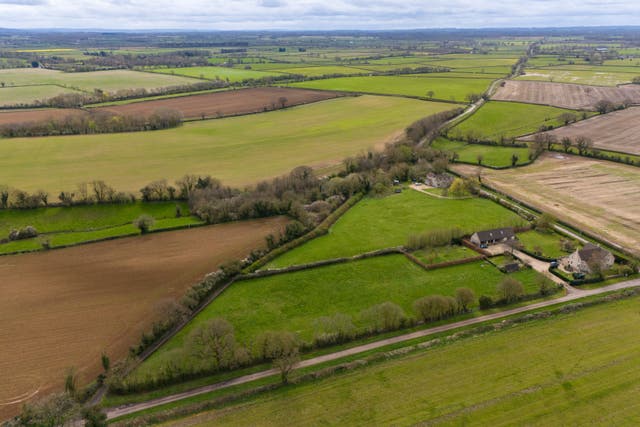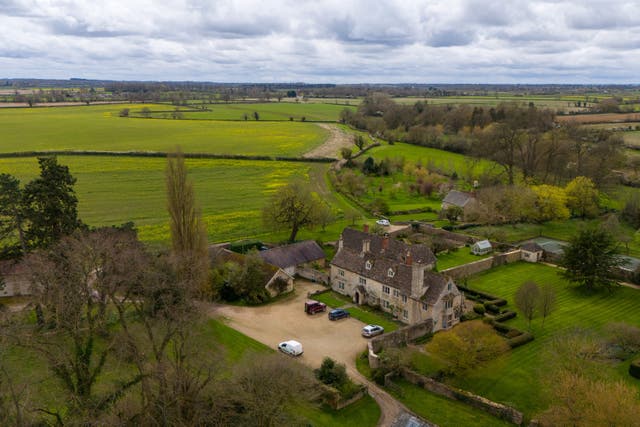Thousands sign petition against 2,000-acre solar farm in Wiltshire
Lime Down Solar Park is designed to create 500 megawatts of clean energy from six sites situated around the county.

Almost 8,000 people have signed a petition against large solar farms following plans for a development covering 2,000 acres in Wiltshire.
Lime Down Solar Park is designed to create 500 megawatts of clean energy – said to be enough to power around 115,000 homes – from six sites situated around the county.
Locations covered by the project include agricultural land in the picturesque villages of Sherston, Hullavington and Stanton St Quintin, near Malmesbury.
The sites, to be connected into the National Grid’s substation at Melksham, would feature ground-mounted solar photovoltaic panels, a battery energy storage system, and security fencing with CCTV.
Campaigners say the plans would cover productive farmland in a “beautiful and biodiverse countryside”, including more than 300 acres on the Duke and Duchess of Beaufort’s Badminton Estate.
James Gray, MP for North Wiltshire, said eight of the 10 largest solar parks in the UK were already in Wiltshire – with 42 solar farms currently operational in the county.
In a blog post written last month, Mr Gray said the application for Lime Down Solar Park was “scandalous and must be stopped”.
He added: “What is proposed is an absolutely monstrous destruction of some of the most lovely landscapes in North Wiltshire; it will wholly destroy the area’s natural beauty, it will require industrial scale development, and it will make poor little Wiltshire by far the biggest contributor to solar energy in the UK.
“Not only all of that, but especially at a time like this I am firmly of the view that our highly productive farms should be producing food not sacrificed on the altar of climate change.”

A campaign group, Stop Lime Down Solar Park, has been set up to challenge the plans which are being put forward by international developer Island Green Power and cover 2,118 acres.
It describes Lime Down Solar Park as a proposal to cover nearly three square miles of “valuable and productive farmland of our beautiful and biodiverse countryside” in north Wiltshire with 2.75 metre high panels, surrounded by a three-metre high security fence.
Stop Lime Down Solar Park says on its website: “This is not an anti-solar campaign, we believe that large industrial solar farms should be located on former industrial sites or next to motorways, not on productive farmland.”
More than 7,700 people have signed a petition shared by the campaign group, calling for a prohibition on “mega solar facilities” over 50 megawatts on UK farmland.

The government will respond to the petition if it reaches 10,000 signatures.
Lime Down Solar Park is classified as a “nationally significant infrastructure project”, as its generation capacity exceeds 50 megawatts.
An initial six-week consultation began on March 14 and will run until April 26. Island Green Power expects to carry out a second consultation stage in the winter of this year.
Natasha Worrall, project development manager at Island Green Power said Lime Down Solar Park would provide “a significant amount of clean electricity for businesses and homes in the region”.
“As well as providing clean electricity which helps us move away from polluting fossil fuels, it is our ambition to design the project in a way that also boosts and enhances local wildlife by delivering a net gain in biodiversity,” she said.
“We are dedicated to responsible land use and believe that the development and delivery of utility-scale farms can co-exist harmoniously with their environment.”
She added that feedback received during the consultation would help develop the proposals, adding that the company was keen to hear from as many members of the community as possible.





